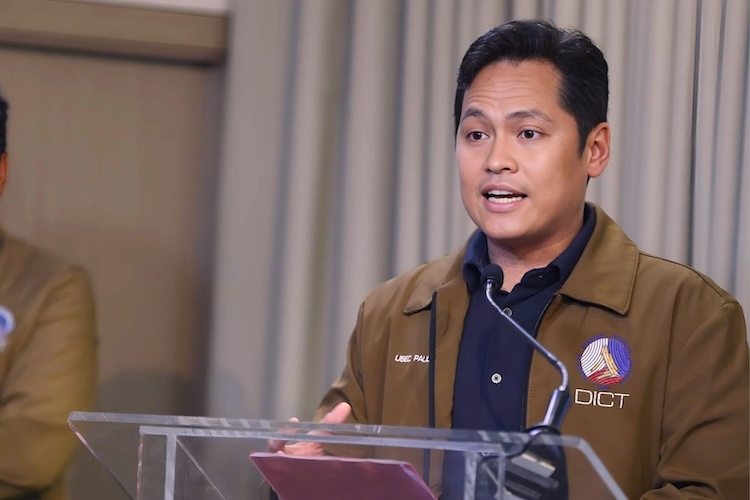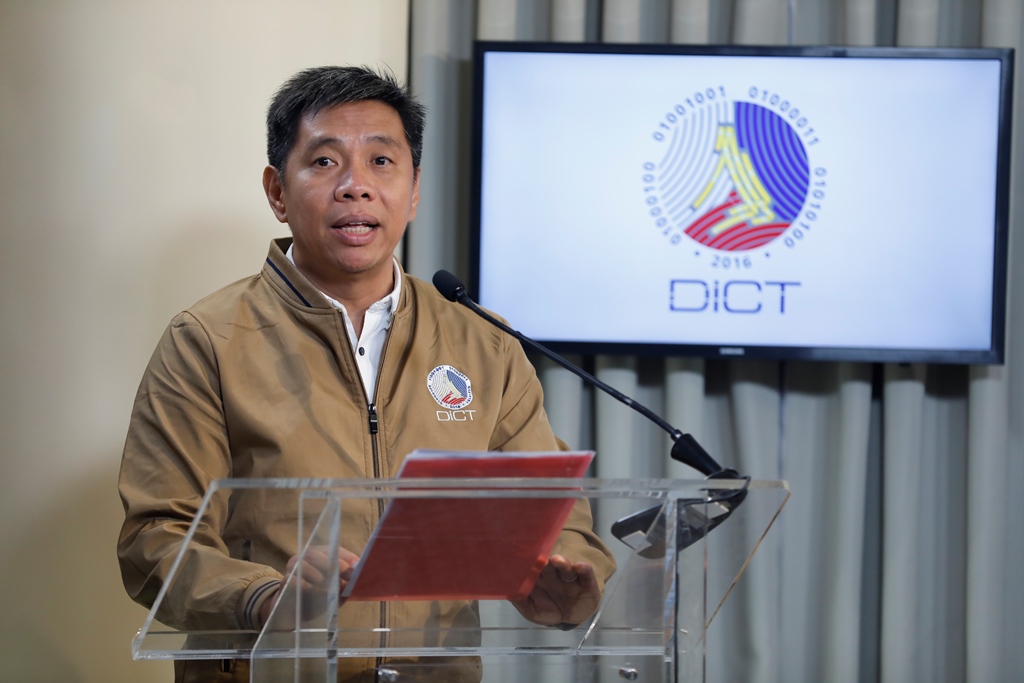
By Brian Campued
The Department of Information and Communications Technology (DICT) on Wednesday announced that around 1 million SIM cards will be distributed for free to teachers and students in geographically isolated and disadvantaged areas (GIDAs) under the Bayanihan SIM project at the end of the second quarter to the third quarter of 2025.
In line with President Ferdinand R. Marcos Jr.’s directive to expand connectivity nationwide, DICT Usec. Paul Joseph Mercado said their agency partnered with the Department of Economy, Planning, and Development (DEPDev) to implement the three-year targeted project aimed at providing internet access to underserved areas.
Mercado explained they will build more digital infrastructures saying, “Ang layon po natin ay maparami ang digital infrastructure which is iyong tower sa iba’t ibang lugar especially doon sa ating mga GIDA, ang gagamitin po natin dito ay cell signal ‘no kasi towers po ang gagamitin natin.”
“With that 1 million SIM cards, may subscription po. Ang uunahin po naming bigyan ay ang mga estudyante at guro kasi ang purpose po nito ay ang ating education,” he added, noting that the SIM cards will come with a monthly allocation of 25GB mobile data.
Identified GIDA locations will be posted on the DICT website, Mercado said.
Digital progress to reach most remote areas — DICT chief
In the same press briefing, DICT Sec. Henry Rhoel Aguda underscored the importance of bringing digital connectivity in the most remote and underserved areas across the country, reiterating the President’s call for an inclusive digital transformation in the Philippines.
In observance of the 2025 National Information and Communications Technology (NICT) Month, Aguda said the DICT will hold a nationwide roadshow to highlight the far-reaching impact of digital progress, with events set in Batanes, Tawi-Tawi, Dumaguete City, and Valenzuela City.
“Kaya po sa NICT Month, nagsisimula po kami sa Batanes, tapos susunod sa Tawi-Tawi, tapos papasok nang papasok. Kasi iyon iyong tipong na-online mo… mayroon na silang connectivity through the free Wi-Fi and through the Bayanihan SIM, mayroon pa silang eGov App, eh ’di malaking bagay sa kabuhayan nila iyan,” the DICT chief said.

The Tawi-Tawi leg of the NICT celebration is expected to showcase the benefits of internet access, especially in boosting tourism and e-commerce as well as opening more employment opportunities for locals.
“Malaking bagay po iyan,” Aguda note. “Trabaho, komersiyo at saka isa po, security rin. Kasi with digital, puwede ka na ring magkaroon ng safe city—puwede nang ma-monitor iyong kapaligiran 24/7.”
Through the 2025 NICT Month, the DICT reaffirm its goal of generating at least 8 million digital jobs by 2028; commit to expanding reliable technology-driven connectivity in collaboration with telecom partners; and highlight initiatives on digitizing micro, small, and medium-sized enterprises (MSMEs) and promoting grassroots innovation through ICT.
The culminating event will be held in Valenzuela City on June 30, where the DICT and the Valenzuela City government will sign a memorandum of understanding on the development of a premier ICT hub, called the “Silicon Valenzuela”.
-jpv
